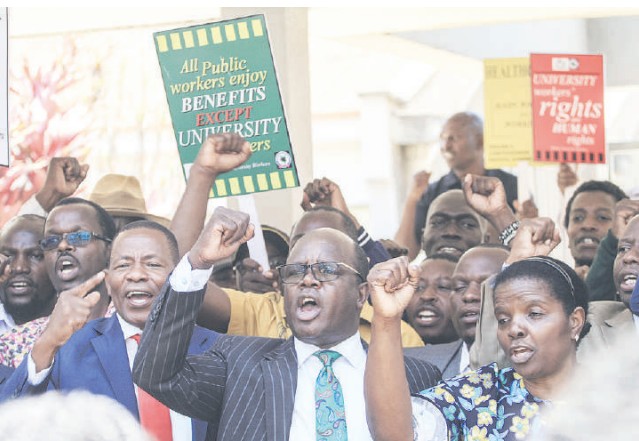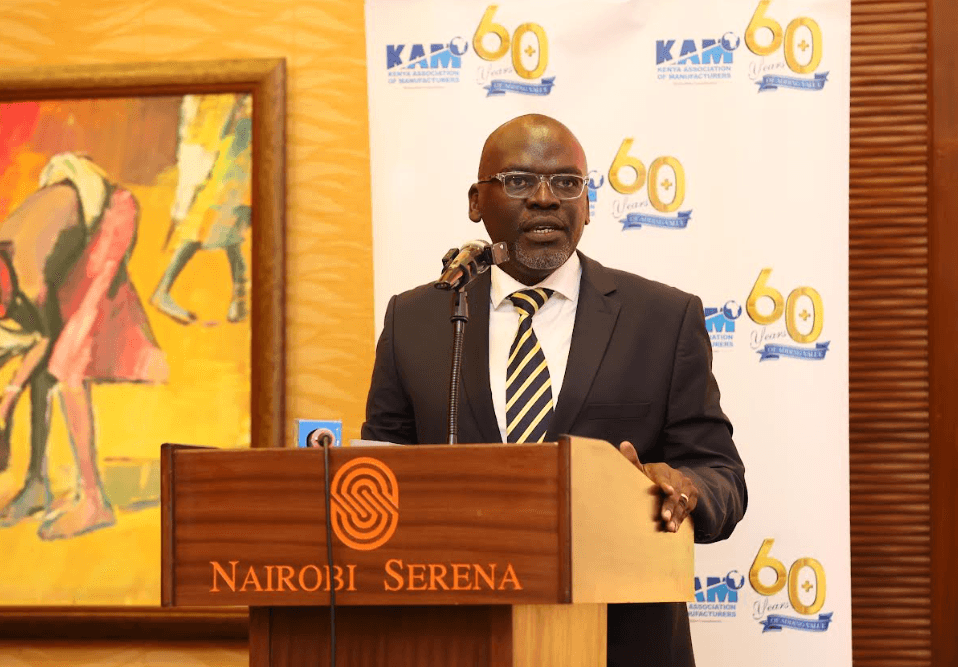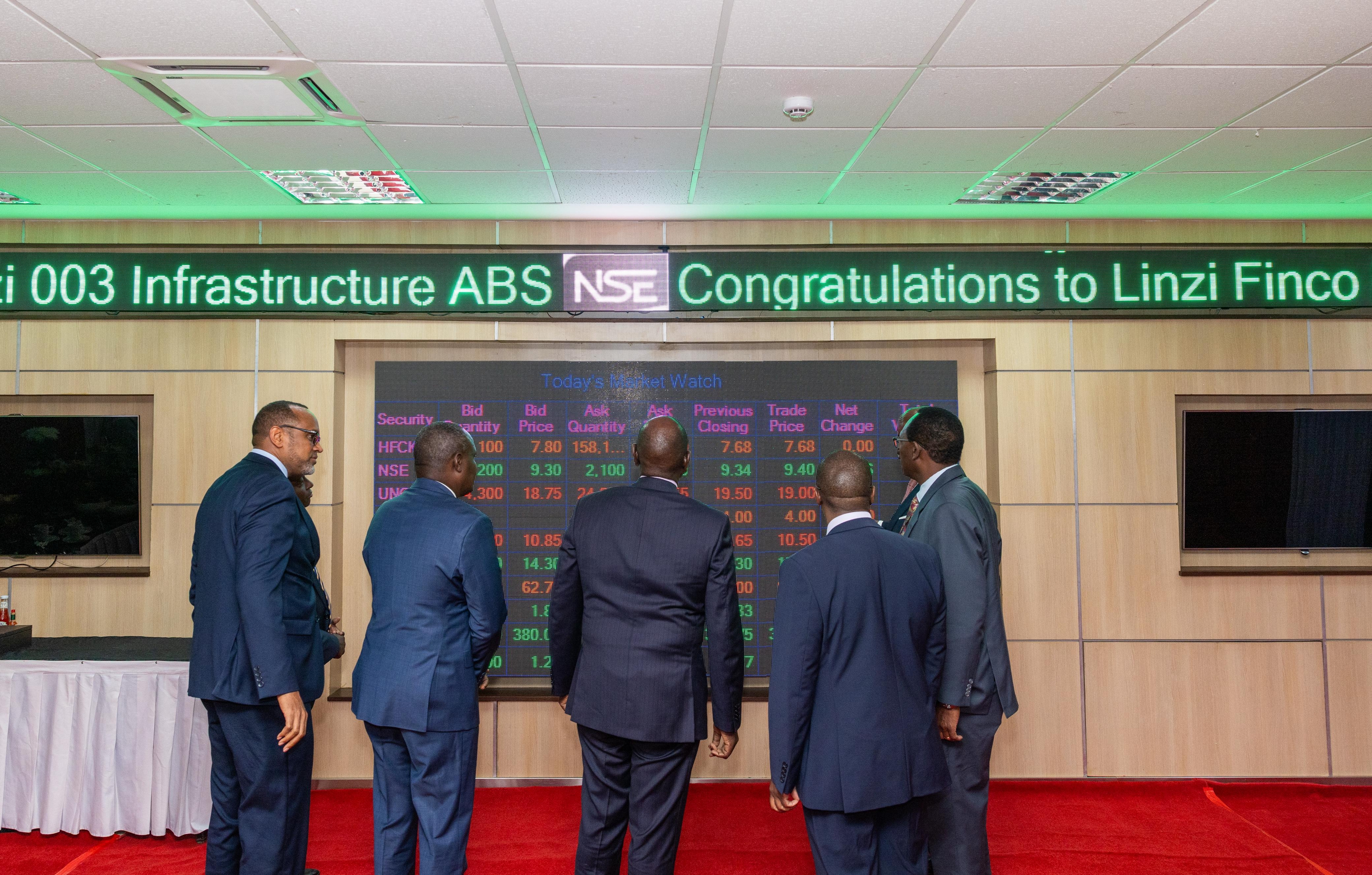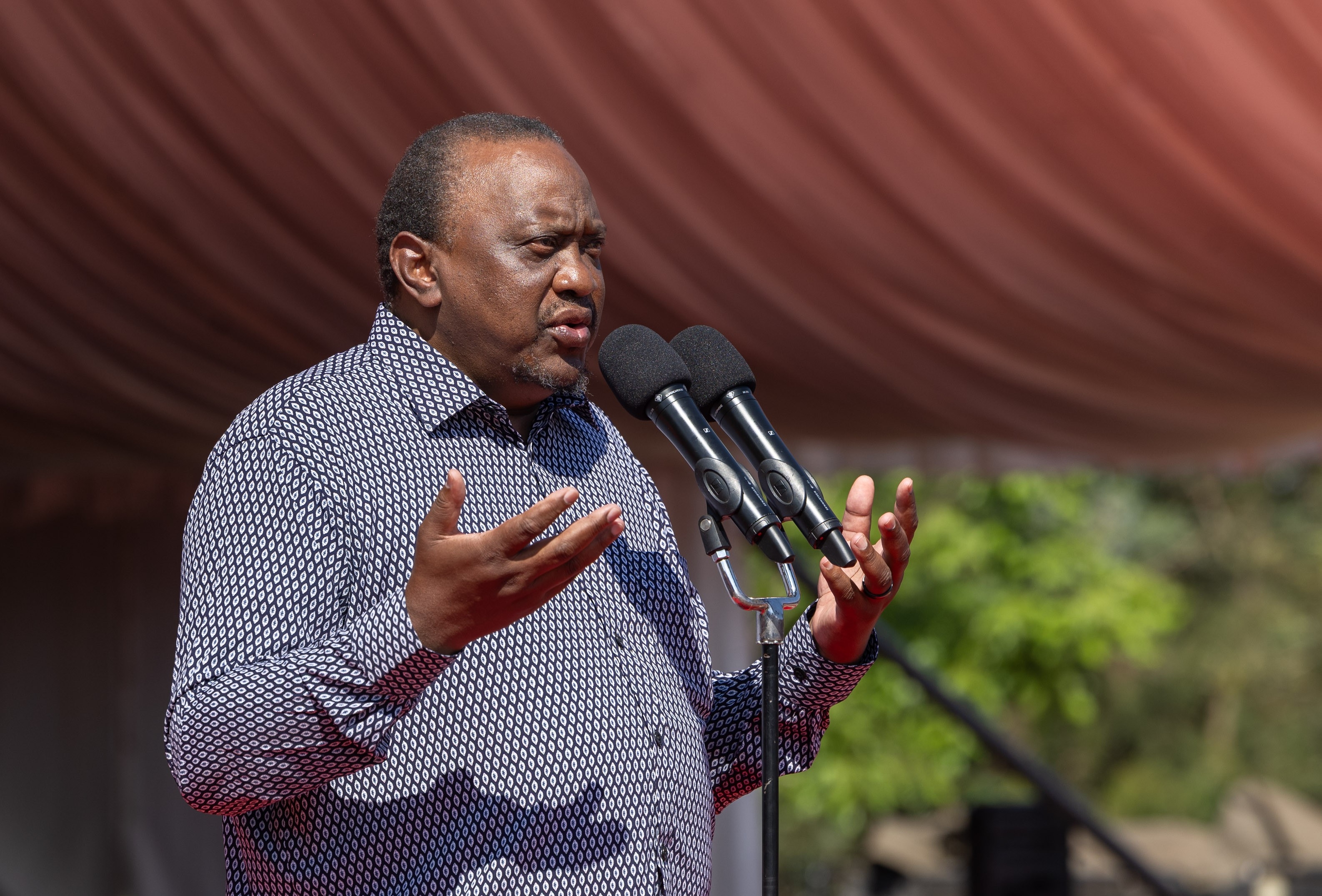

The national government is making a last-ditch effort to avert a lecturers strike threatened by the university staff unions.
From the University of Nairobi to Kirinyaga and the Technical University of Mombasa, lecturers and university staff have withdrawn their services, paralysing higher education—a sector that has faced sustained disruptions in recent years.
The strike, called by the Universities Academic Staff Union (UASU) and Kenya Universities Staff Union (KUSU), aims to achieve three main goals. They are the payment of Sh2.73 billion owed from phase two of the 2021-25 Collective Bargaining Agreement due in July this year, Sh7.9 billion outstanding from the 2017-21 CBA and the negotiation and registration of a fresh CBA for the period 2025-29.
UASU secretary general Constantine Wasonga, while calling for the strike set to begin at midnight on September 17, expressed dismay that the Salaries and Remuneration Commission appeared unaware of a 2021 labour court order directing the National Treasury to increase budget allocations to enable the state to honour lecturers’ dues.
The strike came few weeks after universities resumed sessions for the 2025-26 academic year.
On Wednesday, activities in most public universities were paralysed, with no clear communication to students and lecturers absent from their duties.
In a bid to salvage the situation, Education CS Julius Ogamba announced that the National Treasury had released Sh2.5 billion towards implementing the second phase of the 2021-25 CBAs for universities.
In a statement, the CS urged UASU to withdraw the seven-day strike notice issued last week.
Ogamba reiterated the government’s commitment to honouring all its obligations under the return-to-work formula.
However, UASU secretary general Wasonga said the government had failed to fulfil the negotiated and registered CBAs, prompting lecturers in public universities to withdraw services. Forty-one universities have signed the strike notice dated September 10.
Higher Education PS Beatrice Inyangala sought to calm tension, insisting the issues were being addressed and the government was not intransigent.
“The issue was that they [the lecturers] did not want the money paid in instalments. They wanted it as a lump sum, which we are working on. They understood that it was a lag in the process, not unwillingness to pay. We just differed on the approach, but that was discussed and rectified,” she said.
Despite government efforts, lecturers at Kirinyaga University took to the streets on Wednesday to mark the start of their strike after the government failed to fulfil their CBA obligations.
UASU Kirinyaga chairperson Lucas Macharia said the second tranche was due in July.
“What the government did was produce promissory notes. Lecturers don’t eat promissory notes. If there’s no money, there will be a strike. To avert it, the government must release funds,” Macharia said.
He said lecturers had exercised enough patience and would not relent until the arrears are paid.
Kirinyaga branch secretary general Robert Gitau accused the government of failing to honour the CBA, noting that officials had repeatedly requested more time to process funds, leaving lecturers waiting for months.
He said the state implemented the 2017-21 CBA piecemeal, leaving arrears amounting to Sh8.8 billion.
Gitau also pointed out that the 2021-25 CBA expired in June, with proposals submitted to the government, which has yet to present a counteroffer.
“It’s for these reasons we have gone on strike because, unfortunately, this is the only language the government understands,” he said.
Kirinyaga university staff union secretary general Stephen Kahungura said numerous discussions with the government had failed to yield tangible results.
“This is despite widespread reports of wastage of funds within government. We know Treasury has money, and we will not continue working without the funds,” he said.
At the same time, learning at the Technical University of Mombasa was also disrupted on Wednesday after academic and non-academic staff downed their tools.
“We will not return to class or resume cleaning until the money hits our bank accounts,” said UASU TUM chapter secretary Josiah Odalo.
“In that regard, we are demanding Sh8.8 billion from the national government. That money has not been released and no one is talking about it,” Odalo said.
He stressed that by this month, the government should have initiated discussions over the 2025-29 CBA, since CBAs are negotiated in cycles.
“We will only return to class and serve Kenyans if those three issues are addressed. Otherwise, we will stay out of class for however long it takes,” he warned.
Kenya Universities Staff Union TUM branch secretary John Ogwang accused the government of deliberately refusing to honour agreements registered in court.
“Every time, they pay half the agreed amount, saying it was not factored into their budget, then ask for time to include it in supplementary budgets. After giving them time, they forget about us while they eat to their fill, and we sleep hungry,” he said.
Instant anaysis
The government’s delayed fulfilment of negotiated pay agreements has reignited tensions in the higher education sector, pushing lecturers to strike amid growing frustration over unpaid arrears and stalled negotiations. Despite last-minute efforts to release funds, trust remains low, and the strike threatens to deepen disruptions in university education.


















